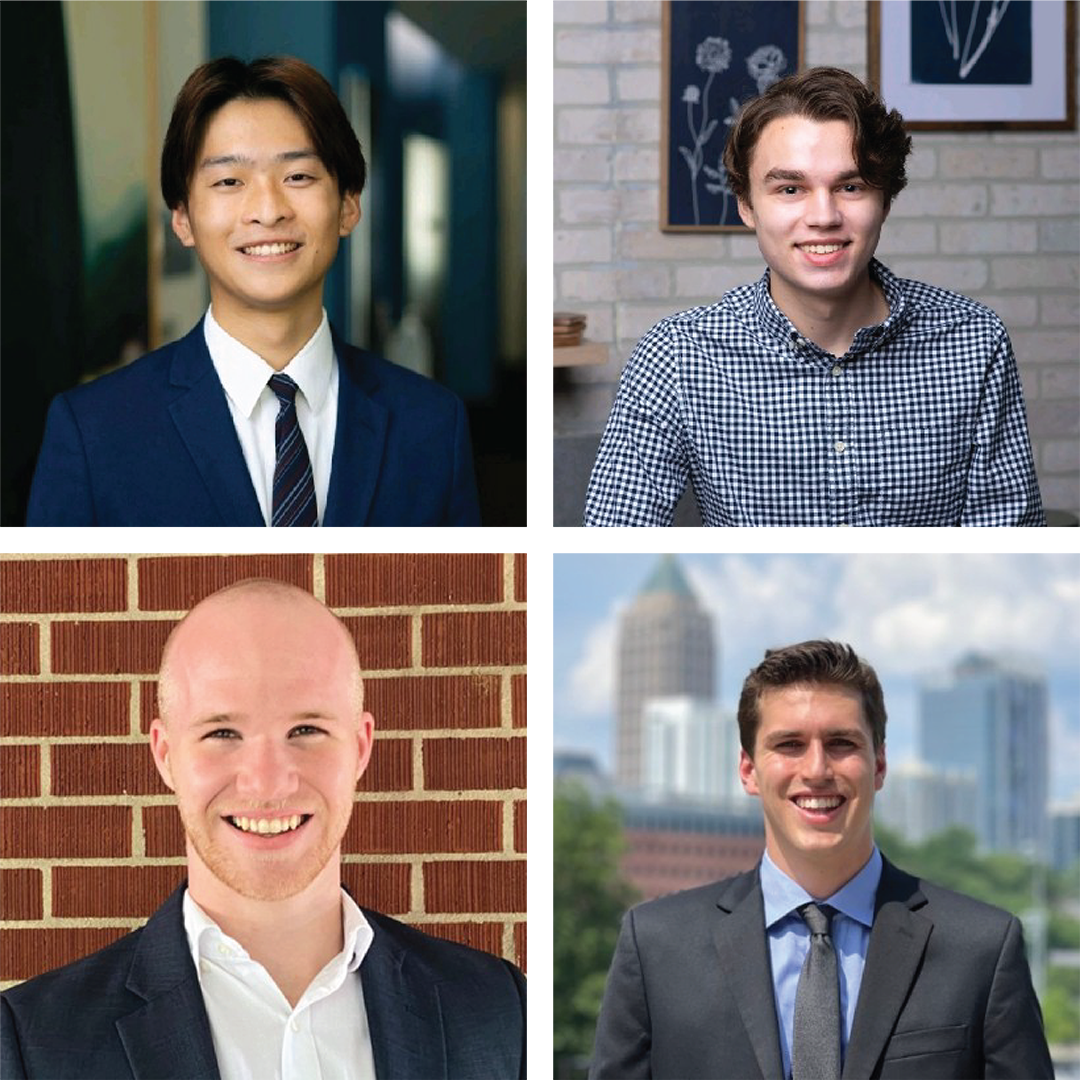“You inspire us all,” said Scheller College of Business Professor Beril Toktay to participants of Georgia Tech’s 2022 Carbon Reduction Challenge. On August 19, 2022, Toktay and Challenge Co-director Kim Cobb addressed students, faculty, staff, partners, and members of the public who had gathered virtually for the Carbon Reduction Challenge Finalist Expo. The collective accomplishment of all 17 participants was celebrated, and finalists had the opportunity to share their projects with attendees.
Summer 2022 marked the sixth year of the Challenge, which is organized by the Ray C. Anderson Center for Sustainable Business at the Scheller College of Business and the Global Change Program.
In the Challenge, students from Georgia Tech, Kennesaw State University, Life University, University of Illinois Urbana-Champaign, and University of Miami volunteered to serve as sustainability ambassadors at partnering organizations. They researched and pitched projects that could reduce carbon and costs for their employers. Partner organizations included AAA Auto Club Group, Boeing, City of Norcross, Electrify GT, Houston Galveston Area Council, KPMG, and Project Flux.
Throughout the summer, students worked in diverse departments across organizations to identify and present carbon reduction projects. The students were supported by the Challenge’s technical leads: Toktay; Cobb; and Scott Duncan, research engineer in the Aerospace Systems Design Laboratory.
First prize ($2,000) was awarded to team Electrify GT for their project on the electrification of fleet vehicles on the Georgia Tech campus. Team members included Georgia Tech students Jason Juang, (business administration major), John Schmidt (computer science major), Bryce Smith (chemical engineering major), and Sam Wombough (history and sociology major). Georgia Tech currently operates over 400 fleet vehicles fueled with gasoline or diesel that produce planet-warming greenhouse gasses. The team’s report explores the feasibility of replacing Ford F-150s, Rangers, and Transits with equivalent electric alternatives over a 20-year study duration. The team proposes early retirement of the current fleet and replacement with electric vehicles to minimize costs and reduce lifetime carbon emissions. Over 20 years, Georgia Tech could see a total potential savings of 9,195,000 lbs. of CO2 and $951,000.
 Electrify GT is a student organization founded in Fall 2021 to promote electrification of Georgia Tech’s campus infrastructure. Over the past year, members have researched methods for Georgia Tech to transition from infrastructure powered by fossil fuel to electric alternatives. For instance, they researched and advocated for the transition from gasoline-fueled landscaping equipment to battery-powered alternatives. Smith said, “The Challenge gave us the opportunity to complete a similar project with the help of a team of experts. After completing the Challenge, we are extending our research to the electrification of Georgia Tech’s entire fleet and plan to advocate for this change.” The team thanks Georgia Tech’s departments of Parking & Transportation Services and Sustainability & Building Operations for helping them better understand current fleet operations.
Electrify GT is a student organization founded in Fall 2021 to promote electrification of Georgia Tech’s campus infrastructure. Over the past year, members have researched methods for Georgia Tech to transition from infrastructure powered by fossil fuel to electric alternatives. For instance, they researched and advocated for the transition from gasoline-fueled landscaping equipment to battery-powered alternatives. Smith said, “The Challenge gave us the opportunity to complete a similar project with the help of a team of experts. After completing the Challenge, we are extending our research to the electrification of Georgia Tech’s entire fleet and plan to advocate for this change.” The team thanks Georgia Tech’s departments of Parking & Transportation Services and Sustainability & Building Operations for helping them better understand current fleet operations.

Second Prize ($1,000) was awarded to Georgia Tech business administration major Meghana Embar for her project at KPMG. She proposed an alternative to the organization’s practice of shipping laptops to interns overnight. Laptops could instead be picked up at an in-person welcome event, thereby reducing carbon emissions and saving costs related to transportation.
Third Prize ($500) was awarded to the Boeing team of student interns, including business administration majors Jacob Castle and Zachary Sewell, and industrial engineering major Shumraze Fawad. The students are members of the Steven A. Denning Technology & Management Program at Georgia Tech. Their project addressed the establishment of an aerospace-grade carbon fiber recycling program in the United States.
Honorable Mention was awarded to Jalia Killings, an industrial and systems engineering major at Kennesaw State University who interned at City of Norcross. Her project focused on an HVAC retrofit for City Hall and thermostat set points adjustments for several buildings.
If implemented, students’ carbon reduction projects could potentially avoid over 30 million pounds of CO2 and save over $1.5 million in one year.
Cobb said, “The Challenge is an incredibly meaningful event for me as a climate scientist. It’s wonderful to see students get involved and develop skills they can use to address climate change.” She described how the students become part of “an ecosystem of climate solvers” who demonstrate to organizations that changes for a low carbon future can be made fairly easily.
Toktay applauded the range of projects, the professionalism of the teams, the stakeholder engagement, the rigor of calculations, and the co-benefits of the projects, such as improved health and well-being. Toktay also highlighted the diversity of participants’ majors, stating, “This is very typical of the Challenge. The students can be part of the climate solution no matter where their futures take them.”
The Carbon Reduction Challenge is a partnership between the Ray C. Anderson Center for Sustainable Business at the Georgia Tech Scheller College of Business (“Center”) and the Georgia Tech Global Change Program in collaboration with the Georgia Climate Project. It is coordinated by Kjersti Lukens, program support coordinator at the Center. Generous support from the Ray C. Anderson Foundation and the Sheth Foundation makes the Challenge possible.
